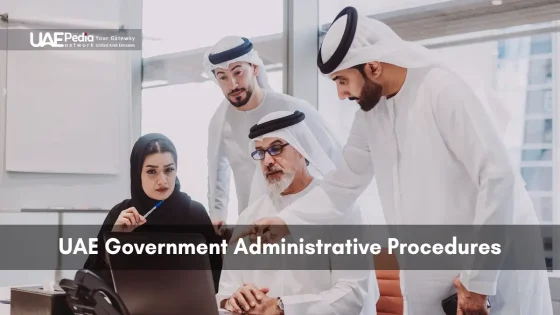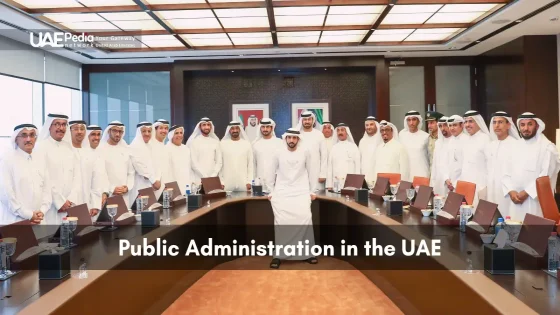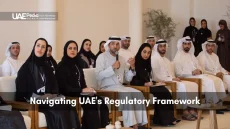The United Arab Emirates (UAE) is a big business hub. Its government structure can be hard to understand. But, learning about UAE’s admin processes could lead to new chances. Did you know expats play a big role in the UAE’s economy? They fill important jobs in many areas. Knowing how the UAE government works is key for those wanting to do well here.
Exploring the UAE’s admin world can open many doors. We’ll look at the UAE’s government setup, important roles, and daily procedures. These are crucial for both residents and businesses.
The UAE Federal Government Structure
The United Arab Emirates (UAE) is made up of seven emirates. These are Abu Dhabi, Dubai, Sharjah, Ras Al Khaimah, Ajman, Umm Al Quwain, and Fujairah. The UAE’s government is led by H.H. Sheikh Mohamed bin Zayed Al Nahyan as the President. H.H. Sheikh Mohammed bin Rashid Al Maktoum is the Vice-President and Prime Minister.
The Supreme Council and Presidential Leadership
The Supreme Council is the top group in the UAE. It has rulers from all seven emirates. This council picks the President and Vice-President, who stay for five years.
The President then chooses the Prime Minister and Cabinet ministers. They answer to the Supreme Council.
The UAE’s presidential election process has maintained 100% continuity since federation, with smooth transitions documented across 5 presidential terms. Ref.: “Al Nowais, S. (2022). UAE Leadership Transition Mechanisms. Gulf News.”
Federal and Local Government Integration
The UAE’s federal and local governments work together. The Constitution says who does what. The Federal Government handles things like education and health.
Local governments help with things in their emirates. They work with the federal government to help out.
Key Administrative Authorities and Their Roles
The UAE has important groups like the Supreme Council and the President. There’s also the Council of Ministers, the Federal National Council, and the Federal Judiciary. They all help run the country.
The Federal Government looks after national things. Local governments handle things in their areas.
UAE Government Administrative Procedures
The UAE government has many rules and steps. These include UAE residency laws and immigration procedures. The Federal Authority for Identity, Citizenship, Customs and Port Security (ICP) handles these important tasks.
Important parts of the UAE’s rules include deportation and appeals. The government also manages education, health, money, and safety. Knowing these administrative processes UAE helps everyone follow the laws. This makes living and working in the UAE easier.
| Procedure | Description |
|---|---|
| UAE Residency Laws | The UAE’s residency laws tell you how to get and keep residency. This includes different visa types, sponsorship, and how to renew them. |
| Deportation Regulations UAE | The government’s deportation rules explain when and how people can be removed from the UAE. They also talk about appeals. |
| Immigration Procedures UAE | The UAE’s immigration steps cover getting entry visas, work permits, and residency permits. This is for both people living here and visitors. |
To work well and follow the rules in the UAE, it’s key to know the administrative processes UAE and procedural guidelines UAE. By understanding these, people and businesses can move around the UAE’s government operations easily and confidently.
Conclusion
Understanding the UAE’s Government Administrative Procedures is key. It helps you know the country’s structure, important authorities, and how things work. This knowledge is important for living and working in the UAE.
The UAE wants to make things easier for everyone. It has programs like the Zero Government Bureaucracy Programme (ZGBP). This helps make government work smoother and faster.
Staying up-to-date with UAE rules is very important. It helps you and your business grow in this changing country. Knowing these rules lets you take advantage of the UAE’s great opportunities.



















